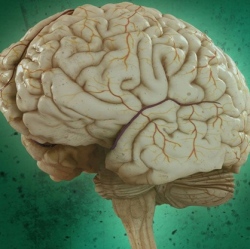
new brain scanner has been developed to help people who are completely paralysed speak by enabling them to spell words using their thoughts.
It uses functional magnetic resonance imaging (fMRI) to help patients choose between 27 characters – the alphabet and a blank space.
Each character produces a different pattern of blood flow in the brain, and the device interprets these patterns.
The British Neurological Association called the research "exciting".
The study appears in Current Biology journal of Cell Press.
fMRI is normally used to track brain activity by measuring blood flow.
Earlier research
The new technology is based on earlier applications of the technique, which used free-letter spelling to allow people to answer the equivalent of multiple-choice questions with just a few possible answers.
British neuroscientist Adrian Owen, for instance, used fMRI to help a man believed to have been in a vegetative state for five years to answer "yes" and "no" questions by interpreting his brain activity.
But the new scanner uses the entire English alphabet and the blank space.
"The work of Adrian Owen and colleagues led me to wonder whether it might even become possible to use fMRI, mental tasks, and appropriate experimental designs to freely encode thoughts, letter-by-letter, and therewith enable back-and-forth communication in the absence of motor behavior."
